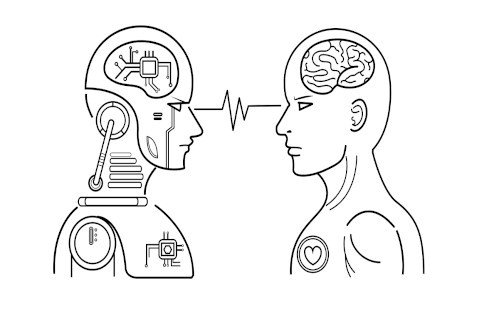Technology, Intellect, and Job Placement
This week's lecture gave me much peace of mind as admittedly over the course of my college education I have begun to fear that my future career will indeed eventually become obsolete. I first selected marketing as my major as it allowed me to continue to express my creativity through the creation of advertisements while also participating in a social career that encourages networking and building relationships. I truly never perceived this career field as easily automated or at risk of becoming a “machine's job” as I had little exposure to AI creation tools before coming to University. However, the recent sudden rapid integration of AI into our society and even classroom environment has made me fear for future career stability. Where I once spent hours creating marketing slideshows, social media posts, or graphics for companies I can now use simple technology to complete the task in a fraction of the time. There is still a great amount of editing we must do once AI has created graphics, posts, or advertisements however the complicated task of idea generation has since been reduced due to these technological advancements.
My real fears associated with technology as I have seen it develop is that it will allow for us to become complacent thus dramatically reducing our overall intellect, communication, and creativity. I will be the first to admit that I often struggle with idea generation when it comes to business ideas, advertising, or even social media posts for different accounts that I run, which is how I knew I could never major in entrepreneurship. Since AI tools enable us to ask simple questions and be presented with hundreds of ideas it erases our need to develop idea generation and creativity skills. It also further allows us to reduce our communication, where we once used to turn to colleagues, friends, or acquaintances for help finding solutions we can now rely on technology getting much more simplified solutions at a quicker pace. Although I understand that these fears reflect the “dystopian” view of this argument and that Dr. Richards expressed several points in opposition with this dystopian perspective as I have watched my peers become more and more reliant on AI to “learn” I fear for society's overall intelligence.
The most reassurance I received from this lecture actually stemmed from the “lump of labor myth,” as my initial career stability fears were most heavily derived from the fact that I assumed technology could easily eradicate jobs, thus eradicating the job market with it. I often hear of technology greatly pairing down the number of employees at a company and we are often statistically quoted that one machine can do X number of employees labor in a shorter time span. Furthermore, the recent state of the job market continuously reflects more employees willing to be employed than there are spots to work. Due to these statistics it is easy to believe that the job market is reducing by a great amount, however we must consider the fact that just because technology exists and functions doesn’t mean it's autonomous. We are not reducing the job market, we are simply pivoting towards new lines of work and with it new technical needs for employees.
Technology as it Coincides with the Replacement of Humanity
This lecture also discusses the continuously present philosophical line between man and machine. The great fear that one day machines will become conscious and with it offer a great threat to the wellbeing of our overall society has long caused distress as we continue to make advances in technological spaces. This continual need to perceive technology as a potentially conscious individual is largely due to the fact that we have a hard time perceiving success and fulfillment separate from humanity. As discussed in our lecture, if working and achievement were merely needed to survive then we would work minimally in order to get by, once our basic needs were met we would stop striving past that. However, the continual climb of the corporate ladder, the constant search for a more fulfilling role in the company, and the ever present competition for a greater dollar amount shows us that we find fulfillment in work not simply survival. This reminded me of John Keatings quote from the Dead Poets Society, “And medicine, law, business, engineering, these are noble pursuits and necessary to sustain life. But poetry, beauty, romance, love, these are what we stay alive for.” When we ask the question, “what do you want to do with your life,” we are not simply measuring worth by career aspiration, we are determining how one derives fulfillment and identity. As a human race we are continuously searching to find fulfillment in every task we set out to accomplish at the same time as we find fulfillment in life. Our true fear of the eventual consciousness of technology lies not within the fact that they will come alive and rule the world but in the fact that once they replace humanity they will remove the ability to find fulfillment. If we are led to believe that technology has the possibility to compromise what we live for then will we ever truly be living?
